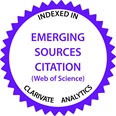Tytuł
Funkcje kontroli w procesie zarządzania i rola menedżera w jej kształtowaniu (na przykładzie wybranych małopolskich organizacji)
Abstract
The article in its introductory part presents the concept and the functions of management process. Given the changes in the approach to tasks and duties of managers, the authors present distinctive features of managing employees' groups. The authors put emphasis on the definition of classic and modern management style and the roles and skills of a manager with the article, the authors describe the control functions as the instrument of creation of the desired organizational behaviors. The nature and course of control functions, as the management instrument, the rules assisting the realization of control function with the emphasis on the significance of these aspects in the creation of the desired attitudes and behaviors of employees have also been presented. In the last part of the article the results of research and analysis conducted in several medium-sized organizations in Małopolska have been described. The results allow the authors to evaluate the control functions of managers from their own point of view. In the concluding part, the authors present their reflections concerning the great meaning of control function in the management process and the managers' attitudes towards the problems of controlling and assessment of their employees.
Abstrakt
Artykuł w swej części wprowadzającej przedstawia istotę i funkcje procesu zarządzania. Biorąc pod uwagę zmiany w podejściu do zadań i obowiązków pełnionych przez menedżerów, zaprezentowano charakterystyczne cechy kierowania zespołami pracowniczymi. Autorzy położyli duży nacisk na określenie klasycznego i nowoczesnego stylu kierowania oraz role i umiejętności menedżera, z ukierunkowaniem na funkcje kontrolne pełnione przez niego w organizacji. W dalszej części artykuł poświęcony jest funkcji kontroli jako instrumentu kształtowania pożądanych zachowań organizacyjnych. Omówione zostały m.in. istota i przebieg funkcji kontroli jako instrumentu kierowania, zasady wspomagające realizację funkcji kontroli, przy czym podkreślono duże znaczenie tych aspektów w kształtowaniu pożądanych postaw i zachowań (działań) pracowników. Następnie zaprezentowano wyniki przeprowadzonych w kilkudziesięciu organizacjach średniej wielkości z województwa małopolskiego badań ankietowych, które pozwalają ocenić kontrolne działania menedżerów z ich własnej perspektywy. W konkluzjach i wnioskach zawarte są przemyślenia dotyczące niebagatelnego znaczenia funkcji kontroli w procesie zarządzania oraz podejścia ankietowanych menedżerów do zagadnień związanych z kontrolowaniem i ocenianiem podwładnych.
Recommended Citation
Potocki, A., & Makowiec, M. (2008). The Control Function in the Management Process and the Role of the Manager in Its Creation (on the Basis of the Organizational Examples in Małopolska). Problemy Zarządzania, 6(22), 45-56. Retrieved from https://press.wz.uw.edu.pl/ems/vol6/iss22/2
First Page
45
Last Page
56
Page Count
11
Publisher
University of Warsaw







